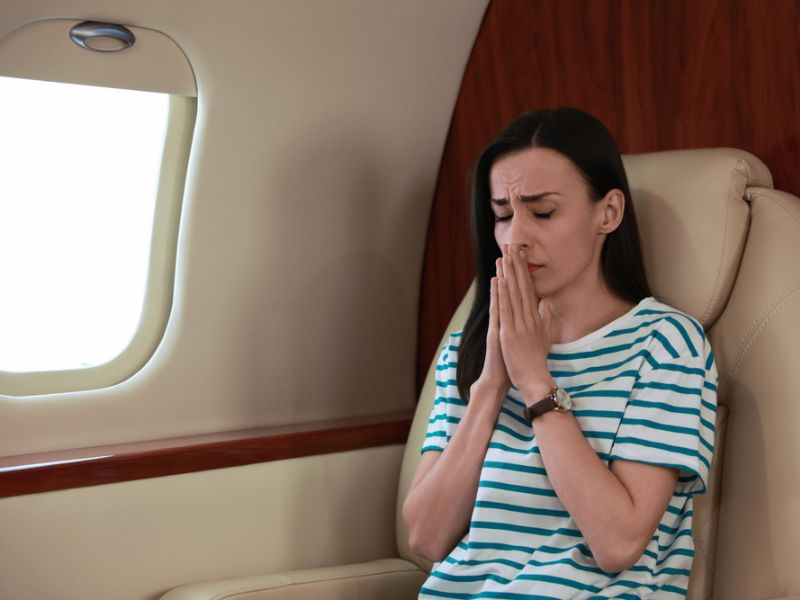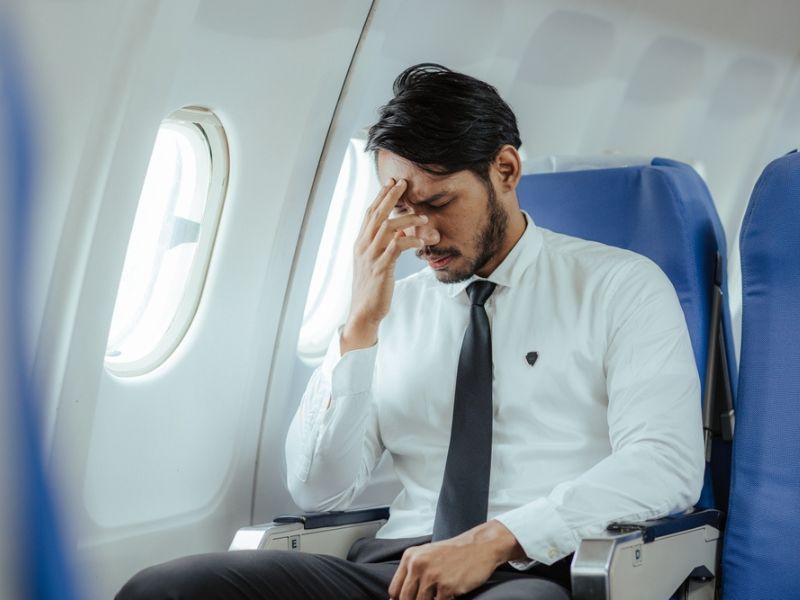A long (or even brief) flight might be dreadful if you have a phobia of flying.
These symptoms include panic attacks, hyperventilation, claustrophobia, vertigo, heavy and/or laboured breathing, excessive sweating, negative thinking, and poor judgment. Some people’s fear of flying may even cause them to avoid taking an aircraft altogether, preventing them from attending enjoyable family gatherings or vacations.
In conclusion, fearing flying might be a terrible experience. Still, there is hope in overcoming your anxiety so you can travel without a panic attack.

Image Credit: Shutterstock/New Africa
How Does This Fear Start to Grow?
Some people’s fear of flying is brought on by simply reading or watching the news. These extremely frightening flight-related issues are frequently highlighted on the front pages of newspapers because we frequently read about crashes and near misses. We witness horrifying examples of post-crash wreckage or terrorist hijacking, which is frightening. As a result, some people have an awful flight experience where they felt danger, or phobias or anxiety can develop simply through observation.
What Happens If You’re Claustrophobic?
Because those who experience severe claustrophobic anxiety frequently experience panic attacks or other anxiety-related illnesses, which make flying challenging. People with these conditions must develop coping mechanisms to deal with the worries that flying triggers. Consult a therapist or psychologist for assistance. Cognitive behavioural therapy incorporating a sizable amount of exposure to it is advised.

Image Credit: Shutterstock/Tualek Photography
Cognitive Behavioural Therapy
It’s one thing to remind yourself of these facts, but quite another to understand them in depth and apply them to managing your flight anxiety.
Seeing a therapist who can help them practice cognitive behavioural therapy is one of the best ways to help people with their anxiety.
Exposure to fear, learn to stop worrying about things you can’t change. Reading about flying or the news and other coping mechanisms can be used as part of this therapy to alter problematic thought and behaviour patterns.